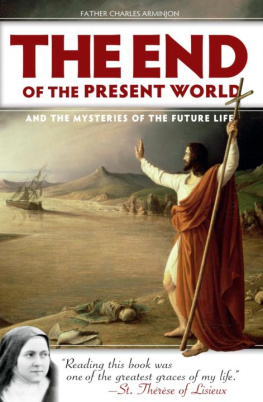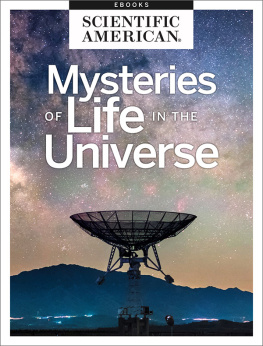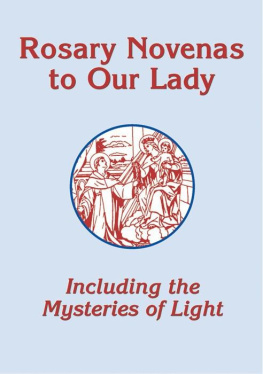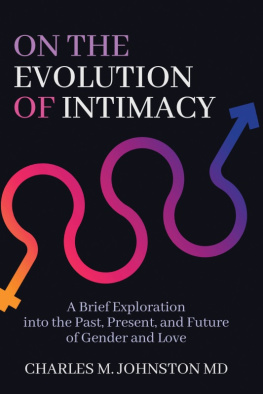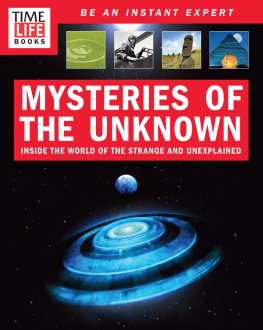Translated by
Susan Conroy and Peter McEnerny





Reading this was one of the greatest graces of my life. I read it at the window of my study, and the impression I received from it is too intimate and too sweet for me to express ...
All the great truths of religion, the mysteries of eternity, plunged my soul into a happiness not of this earth...
St. Therese of Lisieux
ix
xvii
First Conference
Second Conference
Third Conference
Fourth Conference
Fifth Conference
Sixth Conference
Seventh Conference
Eighth Conference
Ninth Conference
Biographical Note
St. Therese of Lisieux, "the Little Flower," gave us the most impressive endorsement of this book, The End of the Present World and the Mysteries of the Future Life:
Reading this was one of the greatest graces of my life. I read it at the window of my study, and the impression I received from it is too intimate and too sweet for me to express ... All the great truths of religion, the mysteries of eternity, plunged my soul into a happiness not of this earth ... I experienced already what God reserves for those who love Him (not with the eye of man, but with that of the heart), and seeing that the eternal rewards had no proportion to the light sacrifices of life, I wanted to love, to love Jesus with passion, to give Him a thousand proofs of love while I still could. I copied out several passages on perfect love, on the reception that the good God will give His elect at the moment when He Himself becomes their great and eternal reward, and I kept repeating unceasingly the words of love burning in my heart."'
In spite of the enormous influence this book had on the life and heart of the greatest saint of modem times, who in turn has inspired millions of lives throughout the world for more than a century, no one had ever translated it into English and published it in America. I personally felt called - compelled - to bring back to life again this book that inspired in Therese "an irresistible impulse toward God," in the hope that it may have a similar influence on souls of our time.
The author, Father Charles Arminjon, was a highly esteemed preacher in France. His book consists of nine conferences that he preached at the Chambery Cathedral and then published in 1881 under the title Fin du Monde Present et Mysteres de la Vie Future. He delivered these conferences with the express purpose of combating "the fatal error and great plague of our century," which he described as "the absence of the sense of the supernatural, and the profound neglect of the great truths of the future life."
St. Therese first read this book in May of 1887, when she was only fourteen years old. She told us that it immersed her in a happiness not of this world. It gave her a presentiment of what God reserves eternally for those who love Him. It taught her that our sacrifices in this life are almost as nothing compared with the rewards that await us in everlasting life.' It inspired her to love our Lord Jesus even more ardently - to love Him "with passion." And it reminded her that life on earth passes by very quickly, and so we should love and serve Him now, while we still can.
Very shortly after reading this book, with her heart aflame with the desire to give everything to God, Therese requested and obtained her father's permission to enter the cloistered Carmelite Monastery in Lisieux. According to Monsignor Andre Combes in The Spirituality of Saint Therese, Father Arminjon's writings had nourished in Therese an "impatience for the joys of Heaven and a paramount esteem for a life wholly consecrated to Divine Love." Thus, Father Arminjon deserves "not only a title to fame" for preaching and publishing these conferences, "but also a right to the gratitude of all devoted followers of St. Therese, and so of the whole Church."
And to that, I say, Amen!
On June 4 and 5 in the year 1887, St. Therese copied out the following extract from Father Arminjon's seventh conference, on "Eternal Beatitude and the Supernatural Vision of God":
As no mother ever loved her dearest son, so the Lord loves His predestinate. He is jealous of His dignity and could not permit Himself to be outdone by His creature on the score of fidelity and generosity. Oh! The Lord cannot forget that the saints, when they once lived on earth, paid homage to Him by the total donation of their repose, their happiness and their whole being; that they would have liked to have had an inexhaustible flow of blood in their veins, in order to shed it as a living and imperishable pledge of their faith; that they would have desired a thousand hearts in their breasts, so as to consume them in the unquenchable fires of their love; and to possess a thousand bodies, in order that they might deliver them to martyrdom, like victims unceasingly renewed. And the grateful God cries out: Now, my turn! The saints have given me the gift of themselves: can I respond other than by giving myself, without restriction and without measure? If I place in their hands the scepter of creation, if I surround them with the torrents of my light, that is a great deal; it is going beyond their highest hopes and aspirations, but it is not the utmost endeavor of my Heart. I owe them more than Paradise, more than the treasures of my knowledge; I owe them my life, my nature, my eternal and infinite substance. If I bring my servants and friends into my house, if I console them and make them thrill with joy by enfolding them in the embrace of my charity, this satisfies their thirst and their desires superabundantly, and is more than the perfect repose of their hearts requires; but it is not enough for the gratification of my divine Heart, for the repletion and perfect satisfaction of my Love. I must be the soul of their souls, I must penetrate and imbue them with my divinity, as fire penetrates iron; by showing myself to their spirits, undisguised, unveiled, without the intervention of the senses, I must unite myself to them in an eternal face-to-face, so that my glory illuminates them, exudes and radiates through all the pores of their being, so that, "knowing me as I know them, they may become Gods themselves."
St. Therese repeatedly referred to the phrases she had read from Father Arminjon's pen "as a guarantee to us that, at a certain time, she really did make it the guiding theme of her interior life, the foundation of her hope and the stimulus for all her sacrifices."

